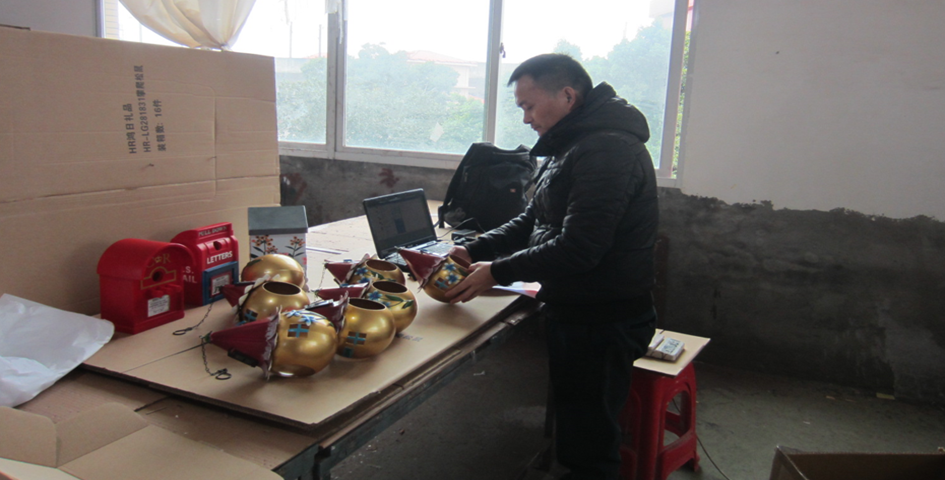Why buying from China is more than the lowest price: Unveiling the PIDEL Approach
In an era where globalization has transformed how businesses operate, mastering the art of international purchasing and logistics has become crucial for companies aiming to sustain and grow in the competitive market landscape. Inspired by a seminar presented by Aidan Conaty, this comprehensive guide dives deep into the PIDEL approach—a strategy designed to optimize purchasing processes and logistics management, ensuring businesses can minimize risks while maximizing returns on their international ventures. It also highlights why buying from China is more than the lowest price.
Understanding the Objectives of Purchasing
At the heart of effective international purchasing lies the dual objective of minimizing risk and maximizing return. It involves maintaining tight control over the process, ensuring high levels of communication, and being prepared to act swiftly to address any issues that arise. On the flip side, maximizing return is not just about reducing the cost of the product itself but also entails cutting down the cost of failure and leveraging opportunities to grow sales. Achieving these objectives requires a structured approach that can navigate the complexities of international trade with precision and foresight.
The PIDEL Framework: A Closer Look
The PIDEL framework, which stands for Product, Inspection & Quality Control, Duties & Taxes, Exchange Rates, and Logistics, was created by Aidan Conaty. It offers a holistic view of the purchasing process, addressing key areas businesses must consider to ensure success in the global marketplace. It also helps folks to understand why buying from China is more than just about securing the lowest price.
Product (P): Knowledge is power when it comes to the product. Understanding the materials, quality standards, and specifications is just the beginning. Knowing who makes your product is equally important—are they a factory or a trader? What countries do they export to? These insights can guide you in making informed decisions, from conducting seller audits to negotiating payment terms.
Inspection & Quality Control (I): The adage “It’s better to find a fault on the factory floor than at your door” rings especially true in international trade. Implementing rigorous quality control inspections can significantly reduce the cost of product failures, minimize production delays, and improve communication with sellers. Whether it’s inspecting finished goods, overseeing container loading, or conducting early production reviews, quality control is a non-negotiable pillar of the PIDEL approach. We recommend Goodada Inspection Services for your quality control services.
PIDEL – Explained
Duties & Taxes (D): Navigating the labyrinth of import duties, anti-dumping duties, and VAT requirements necessitates thorough research and planning. Understanding the implications of these costs is essential for budgeting and compliance in international trade. It is recommended to know the HS code for your goods and find out about any import duties or trade restrictions that may affect this HS code.
Exchange Rates (E): Currency fluctuations can profoundly impact the cost of international transactions. Knowing the preferred currency of the seller and staying informed about current exchange rates can help businesses secure the best possible deals and minimize the risks associated with foreign exchange payments.
Logistics (L): The final leg of the PIDEL framework focuses on the logistics of getting your product from the factory to your doorstep. It encompasses a range of considerations, from selecting the right Incoterms and mode of shipment to managing customs clearance, storage, distribution, and insurance. Effective logistics management ensures that products arrive on time, in good condition, and within budget.
Leveraging Resources for Success – Buying from China is more than the lowest price
The journey through international purchasing and logistics is complex, but businesses are not alone. Utilizing resources like Goodada for inspection services, Goodada Payments for foreign exchange payments, and platforms for calculating duties and taxes can provide valuable support. Moreover, engaging with logistics experts and staying informed through industry blogs and forums can enhance decision-making and strategy development.
Why buying from China is more than the lowest price – Conclusion
Embracing the PIDEL approach to international purchasing and logistics opens up a world of opportunities for businesses ready to take on the global market. By focusing on minimizing risks and maximizing returns across each component of the PIDEL framework, companies can navigate the complexities of international trade with confidence and efficiency.
In conclusion, the fundamentals of international purchasing and logistics, as outlined in the PIDEL approach, offer a strategic blueprint for businesses aiming to thrive in the global marketplace. By adhering to these principles and leveraging available resources, companies can achieve their objectives, overcome challenges, and connect their business to the world—and the world to their business.
TCI China is a specialized consulting firm focused on China’s Supply Chain. We offer various expert services designed to equip our clients with the knowledge and skills required for purchasing from China. For more information, please visit our China Buying Support services page.
For those eager to explore further or seeking clarification on specific aspects of international purchasing and logistics, please get in touch with Mr Aidan Conaty, whose details can be found below.
Mobile- Messenger (Click to Connect)
Or at the following numbers:
(Europe/ Rest of the World) +353 1 885 3919
(UK) +44.020.3287.2990
(North America) +1.518.290.6604
Or email me, Aidan Conaty
Aidan Conaty
tcichina.co.uk | think China, think TCI



